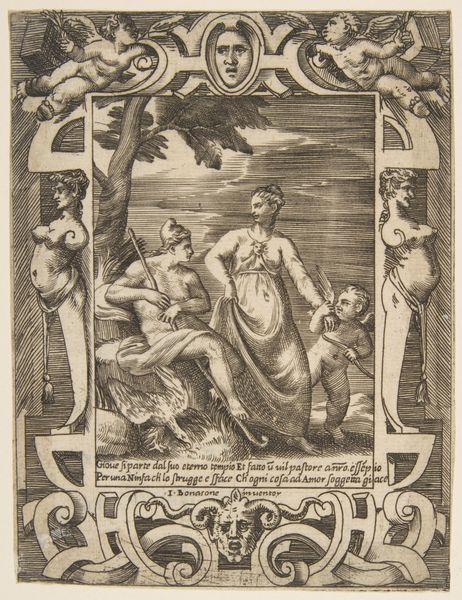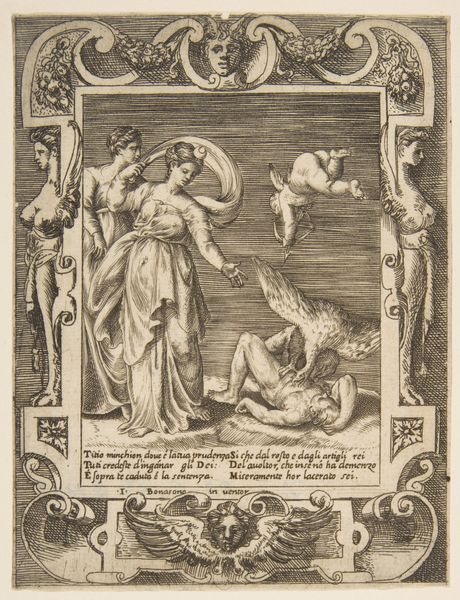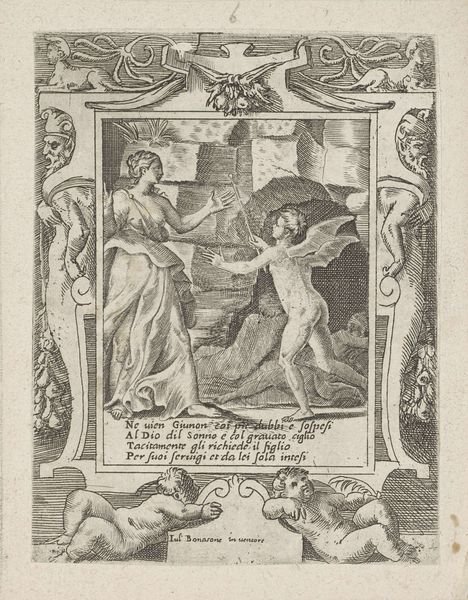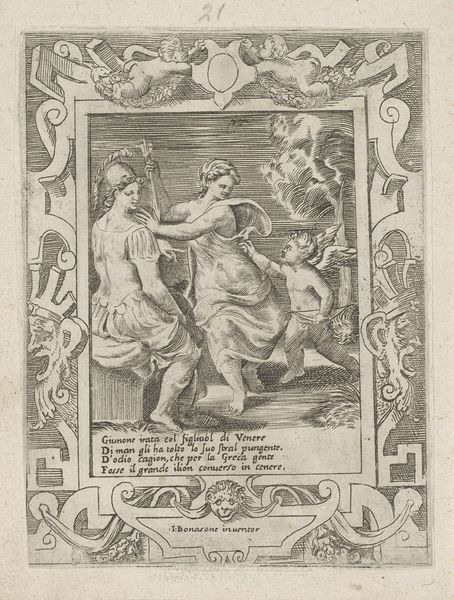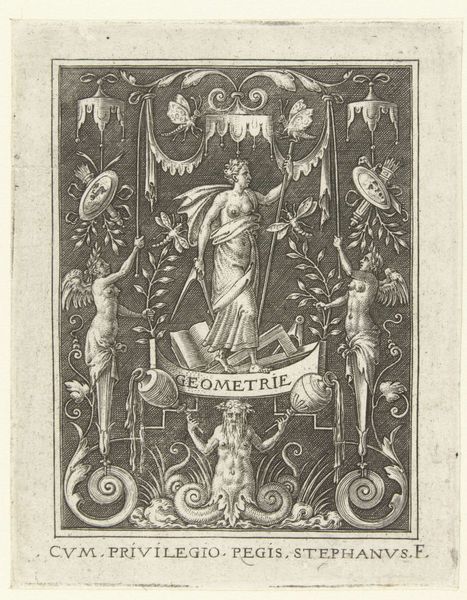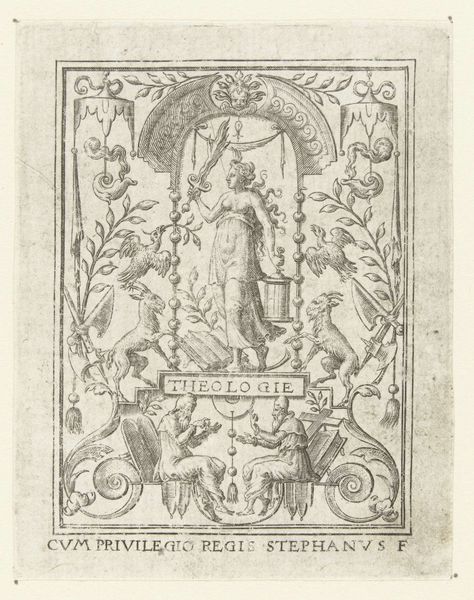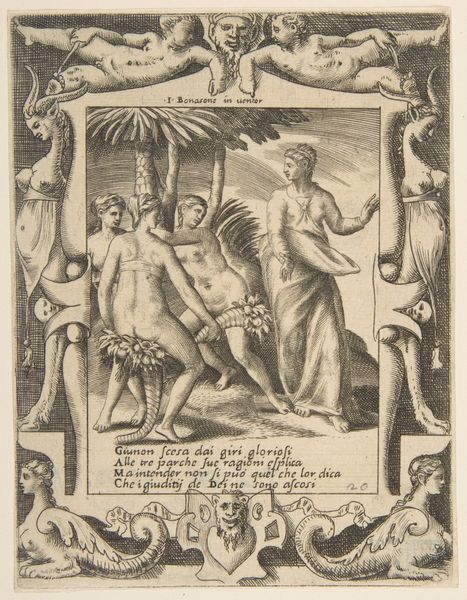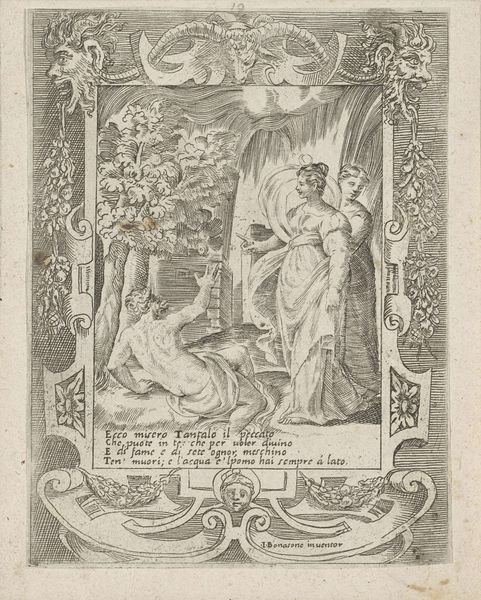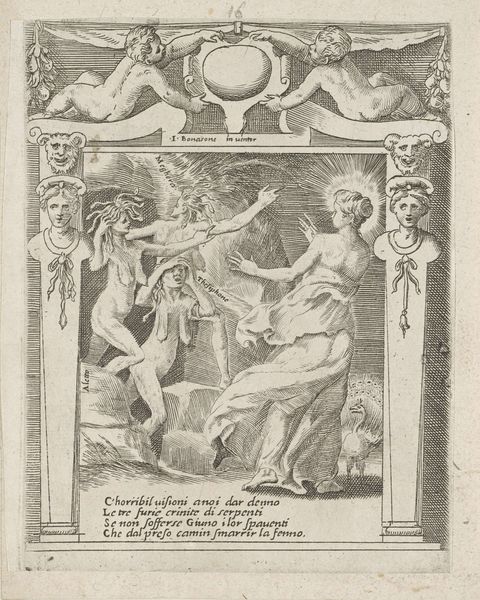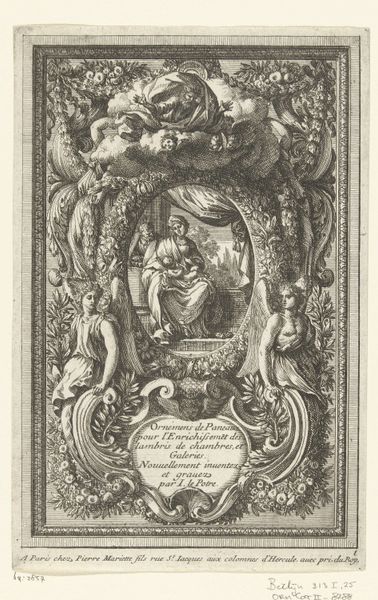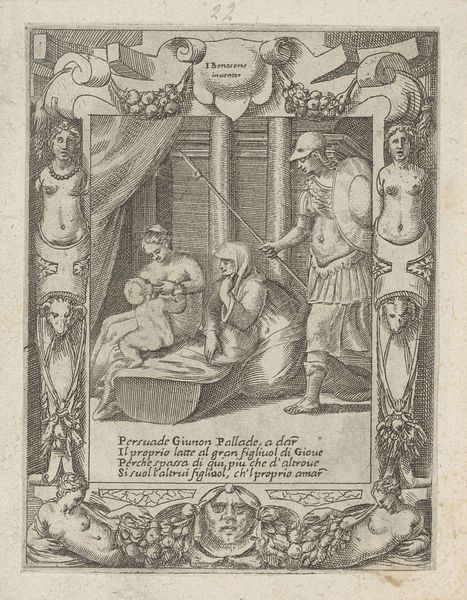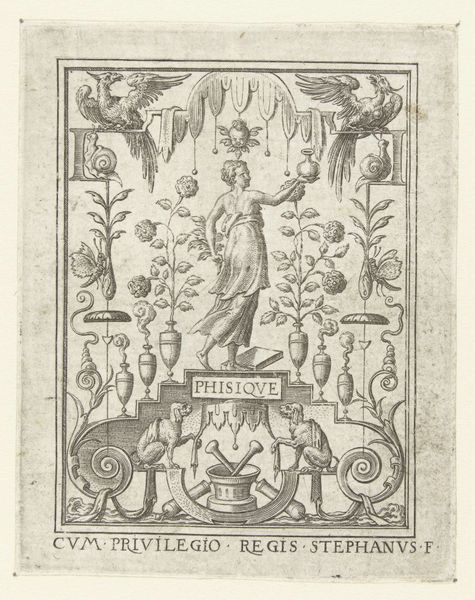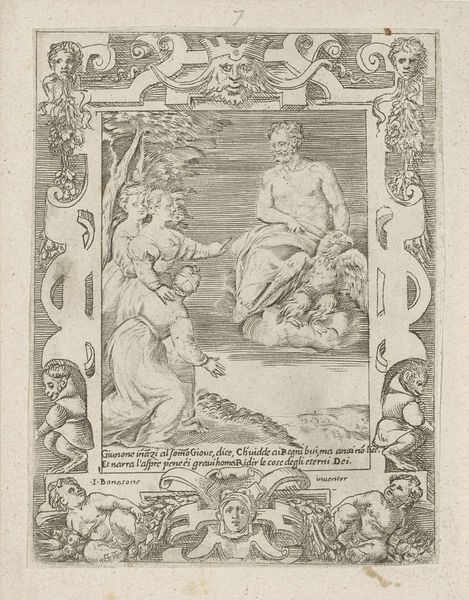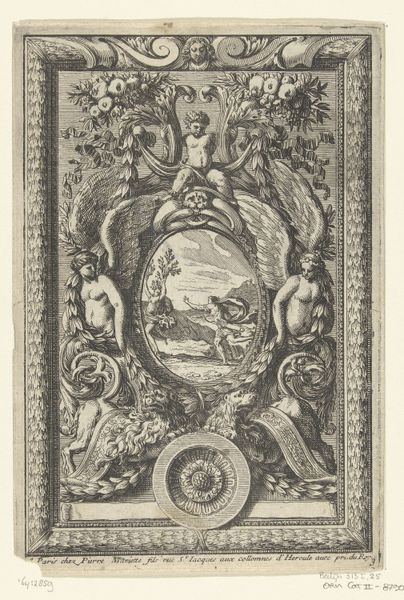
print, engraving
#
portrait
#
allegory
# print
#
old engraving style
#
mannerism
#
figuration
#
line
#
history-painting
#
italian-renaissance
#
engraving
Dimensions: height 131 mm, width 100 mm
Copyright: Rijks Museum: Open Domain
Editor: This is "Jupiter als herder en Mnemosyne" an engraving made by Giulio Bonasone sometime between 1501 and 1580. It's at the Rijksmuseum now. The style seems quite ornate and Mannerist, and overall, I’m curious about how this scene of mythology fits into the culture of its time. How do you interpret this work, especially considering its historical and social context? Curator: Well, consider that Bonasone was working in a period heavily influenced by the rediscovery of classical antiquity and the rise of humanism. The depiction of Jupiter, the king of the gods, as a shepherd, and coupled with Mnemosyne, goddess of memory, it really evokes a narrative of power, desire, and the shaping of history. Do you see how the idealized figures and the intricate decorative frame also reflect the social elite's fascination with classical virtues and beauty? Editor: I do. So, it’s not just about the story, but about how that story is used to communicate ideas about status and values. How might the printing process itself—engraving—influence its message? Curator: Exactly! Engravings allowed for wider circulation of these classical narratives and humanist ideas, making them accessible to a broader, yet still privileged, audience. The detailed lines and careful composition reflect the engraver’s skill, contributing to the prestige of both the artist and the patrons who collected such prints. The medium itself becomes a tool for social and cultural propagation. And the politics of imagery played a large role during the Renaissance. Editor: It’s amazing to think about how this seemingly simple print carries so much historical and cultural weight! Thank you for your historical analysis. Curator: And thank you. This conversation encourages me to appreciate how deeply intertwined art is with social history.
Comments
No comments
Be the first to comment and join the conversation on the ultimate creative platform.
